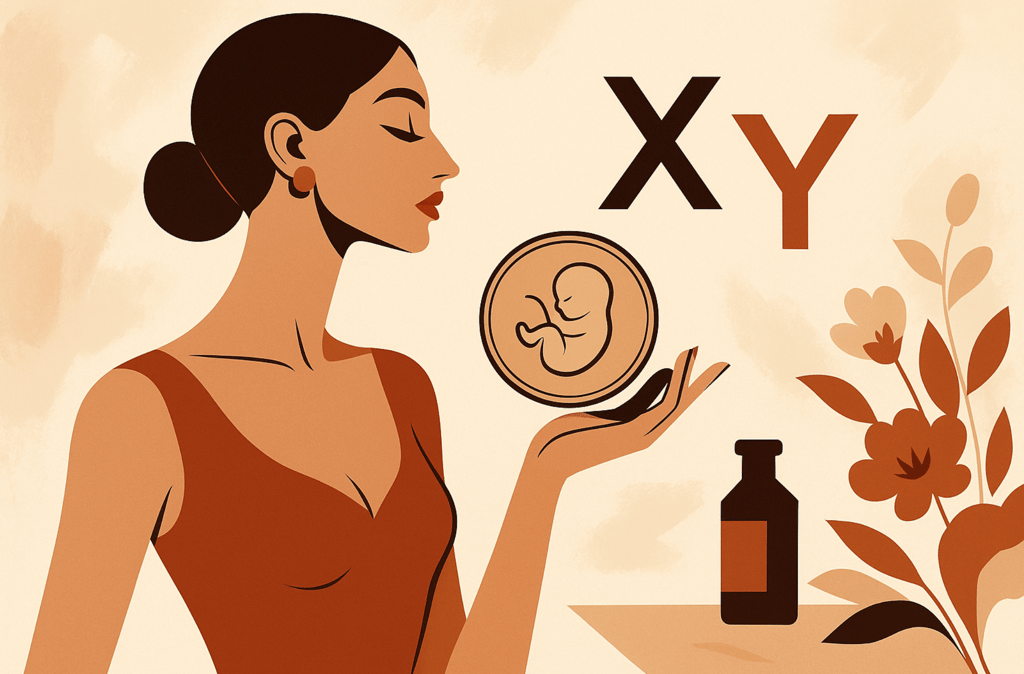Gender Selection: Legal and Ethical Questions
Gender selection UK laws explained: why clinics ban it, global practices, and the ethical debates surrounding embryo gender selection in IVF.
9/2/20252 min read


When it comes to IVF, one of the most debated topics is gender selection - the possibility of choosing whether to have a boy or a girl. In the UK, this practice is tightly regulated, raising important legal, medical, and ethical questions for anyone considering treatment.
Is Gender Selection Legal in the UK?
In the UK, gender selection is not allowed for social or personal reasons. The Human Fertilisation and Embryology Authority (HFEA) only permits embryo sex determination if it is needed to avoid passing on a serious medical condition linked to a specific sex.
For example, if a family carries a condition like Duchenne muscular dystrophy (which mainly affects boys), clinics may screen embryos to ensure only female embryos are transferred. This is strictly about preventing genetic disease, not personal preference.
Choosing gender simply because a couple wants a boy or girl - sometimes called “family balancing” - is not legal in the UK.
Why Is It Allowed in Other Countries?
The rules vary dramatically worldwide:
United States: Many clinics allow gender selection for non-medical reasons, especially through preimplantation genetic testing (PGT).
Cyprus, Greece, Mexico, and some other countries: Gender selection may be offered openly, often marketed as part of “reproductive tourism.”
Most of Europe: Like the UK, many countries restrict it to medical necessity only.
Because of this patchwork of laws, some UK patients travel abroad specifically for gender selection procedures.
How Is Gender Selection Done?
Clinics usually use Preimplantation Genetic Testing (PGT) during IVF. Embryos created in the lab are biopsied, and their genetic material is analysed. This reveals whether the embryo is XX (female) or XY (male).
Once results are in, parents can - if permitted by law - choose which embryos to transfer based on their sex.
The Ethical Questions
The debate around gender selection is deeply divided:
Arguments for:
Parents should have autonomy in family building.
Some see “family balancing” as harmless when healthy embryos are available.
Advances in science should be embraced rather than restricted.
Arguments against:
Risk of reinforcing gender stereotypes or cultural biases.
Concerns about sex ratio imbalances in certain countries.
Ethical unease about treating children as “chosen products.”
Slippery slope: If gender can be selected, what’s next - eye colour, height, intelligence?
For many, gender selection raises the bigger question of whether IVF should serve personal preference or medical need.
The UK Perspective
The UK’s decision to restrict gender selection reflects its cautious approach to reproductive technology. Regulators argue that IVF should prioritise:
Helping people conceive who otherwise couldn’t.
Preventing the inheritance of serious diseases.
Protecting children from being treated as commodities.
At the same time, the rise of international fertility tourism shows that demand exists, and patients willing to travel may bypass UK laws altogether.
Gender selection is a fascinating example of how science, law, and ethics collide in modern fertility treatment. While UK law keeps a clear boundary - only for medical reasons - debates will continue as technology advances and public attitudes shift.
For now, couples in the UK must know that unless there’s a serious medical condition, gender selection remains illegal at home - even if it’s marketed as routine abroad.
© 2025. All rights reserved.
